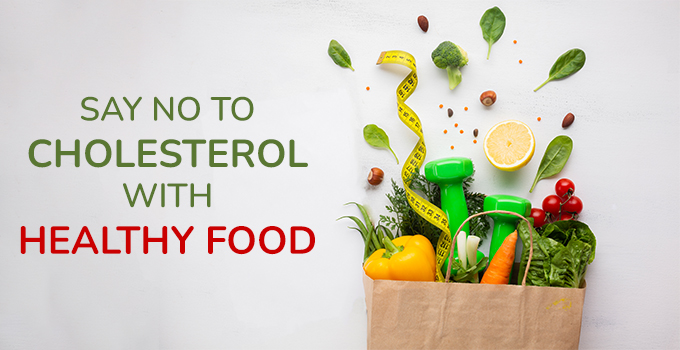
Cholesterol, a waxy substance produced by our liver, plays a crucial role in producing hormones, vitamin D, and the substances that help digest foods. However, too much of it can increase the risk of heart diseases. If you are eager to reduce your cholesterol intake or perhaps are seeking foods without cholesterol for health reasons, then you’ve come to the right place.
In this guide, we’ll delve into the top foods without cholesterol and provide insights into their benefits. Let’s jump right in.
Top Foods with 0 Cholesterol
Whole Grains
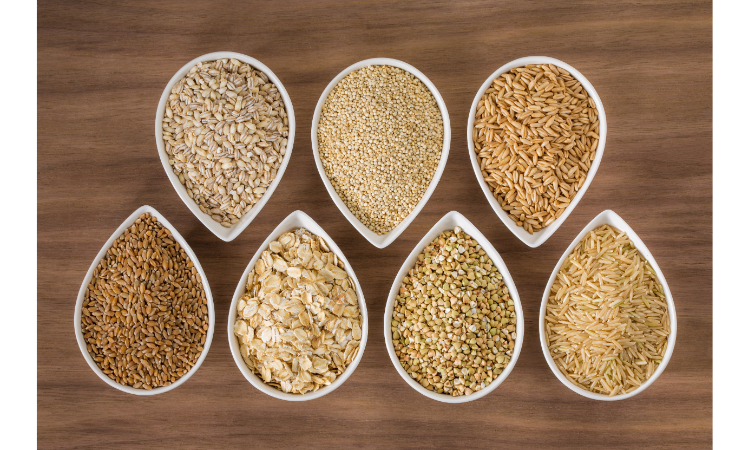
One of the best foods without cholesterol is whole grains. They’re not only cholesterol-free but also offer plenty of fiber, which can help lower bad cholesterol levels. Examples include:
- Quinoa
- Barley
- Oats
- Brown Rice
Fruits and Vegetables
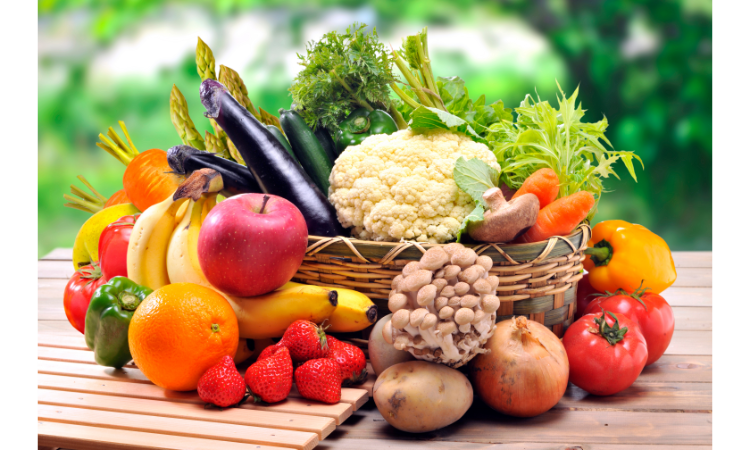
All fruits and vegetables are free of cholesterol. They are packed with vitamins, minerals, and antioxidants that promote heart health. Some top picks include:
- Berries
- Apples
- Leafy greens
- Broccoli
- Brussels sprouts
Legumes
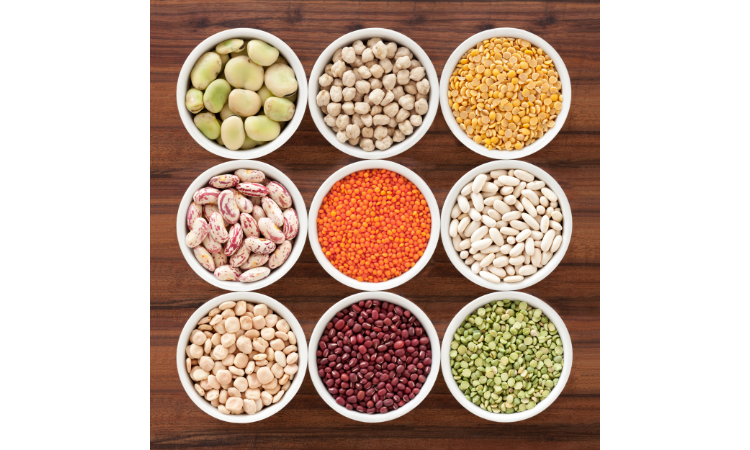
Legumes, like beans and lentils, are cholesterol-free and offer a solid protein alternative to meat. Examples are:
- Black beans
- Chickpeas
- Lentils
- Kidney beans
Nuts and Seeds
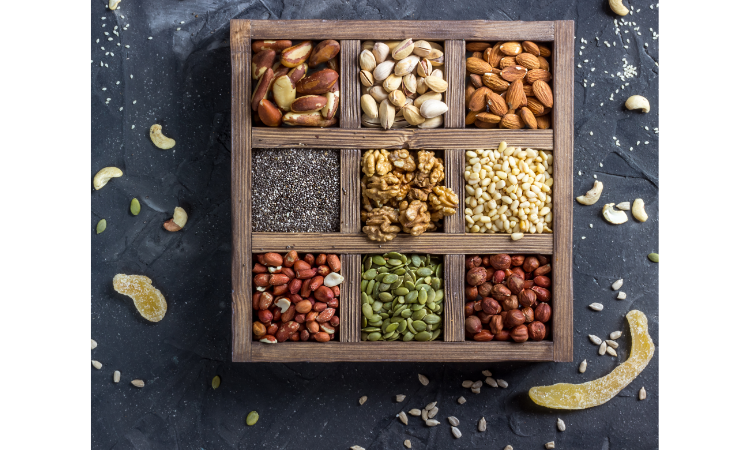
While nuts and seeds do contain fat, they have no cholesterol. Some of the best choices are:
- Almonds
- Walnuts
- Chia seeds
- Flaxseeds
Tofu and Tempeh

Both tofu and tempeh are derived from soybeans, making them perfect cholesterol-free protein sources. They’re versatile and can be used in a myriad of recipes.
Now, it’s also essential to be aware of some of the top foods with high cholesterol so you can make informed decisions about what to avoid.
Foods to Be Cautious Of
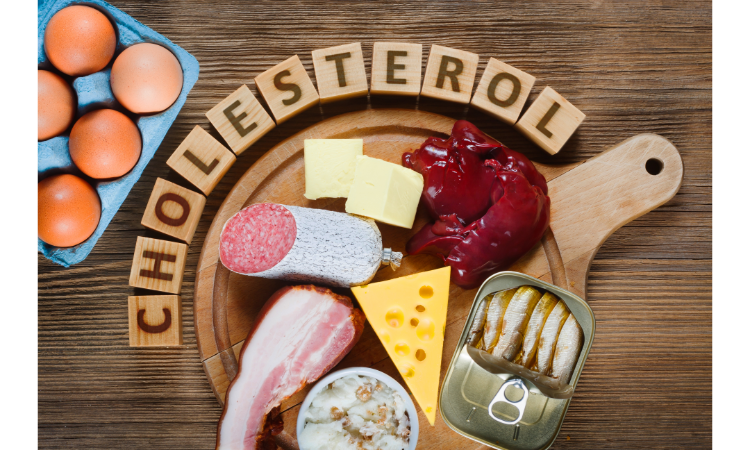
- Red meat such as beef and pork are high in cholesterol.
- Processed meats like bacon and sausages are among the top 5 worst foods for cholesterol.
- Full-fat dairy products like cheese and butter can also contribute to high cholesterol levels.
- Certain seafood like lobster and certain types of fish can have higher cholesterol levels.
Top 5 Cholesterol-Lowering Foods
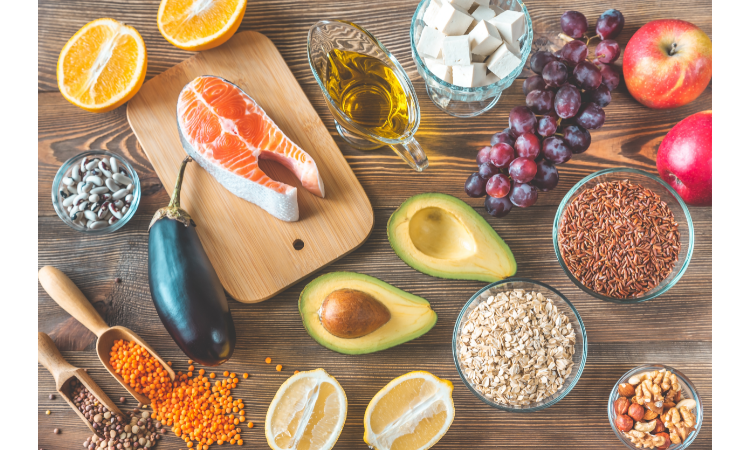
For those who wish to not just avoid cholesterol but actively reduce their levels, consider incorporating the following foods into your diet:
Oats: Starting your day with a bowl of oatmeal can lower your low-density lipoprotein (LDL) cholesterol, the “bad” cholesterol.
Fatty fish: Fish like salmon and mackerel can boost heart health due to their omega-3 fatty acids, replacing meats high in saturated fat.
Nuts: Almonds and walnuts can reduce blood cholesterol.
Olive oil: Just two tablespoons of olive oil a day can help lower LDL cholesterol.
Sterols and stanols: Found in foods like margarine, they block the body from absorbing cholesterol.
What About Fast Food?

If you’re wondering what fast food has the least cholesterol, opt for salads, grilled chicken, or veggie wraps, and always ask for dressings and sauces on the side. Many fast-food chains are now offering more heart-healthy options, making it easier for those watching their cholesterol.
Alternative Diet Approaches
One of the most effective ways to maintain or even lower cholesterol levels is by incorporating specific diets that are rich in foods without cholesterol. Here are some popular diet choices that can make a big difference:
Mediterranean Diet

A favorite among nutritionists, the Mediterranean diet emphasizes:
- Fresh fruits and vegetables
- Whole grains
- Olive oil as the primary source of fat
- Nuts
- Fish and poultry over red meat
- Red wine in moderation
Studies have shown that this diet can help reduce LDL cholesterol and protect against heart disease.
Plant-Based Diet
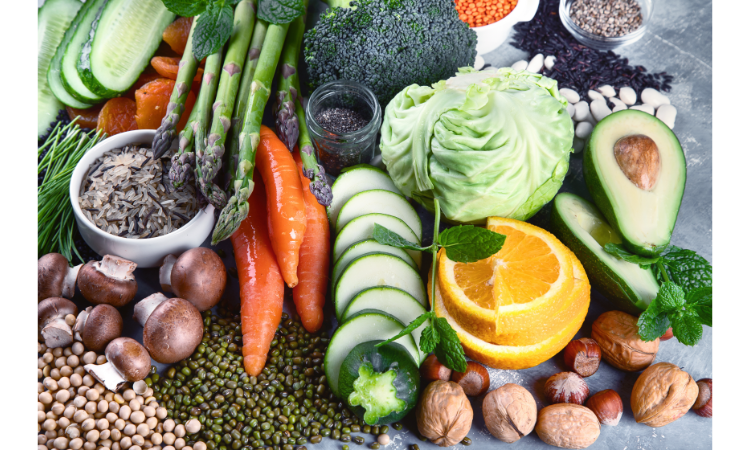
A plant-based diet focuses on foods from plants. This includes not only fruits and vegetables but also:
- Nuts
- Seeds
- Oils
- Whole grains
- Legumes
Because it largely avoids animal products, a plant-based diet is naturally lower in cholesterol and saturated fats.
DASH Diet

Originally developed to fight high blood pressure, the DASH diet can also help reduce cholesterol. It encourages:
- High intake of fruits, vegetables, and whole grains
- Poultry, fish, and nuts
- Reduced fats, red meats, sweets, and sugared beverages
Shopping and Cooking Tips
If you’re now convinced to dive into a cholesterol-conscious lifestyle, here are some handy tips:
Read Labels

When shopping, always check food labels. Look for foods with no or low saturated and trans fats, two significant culprits behind rising cholesterol levels.
Use Healthier Cooking Methods
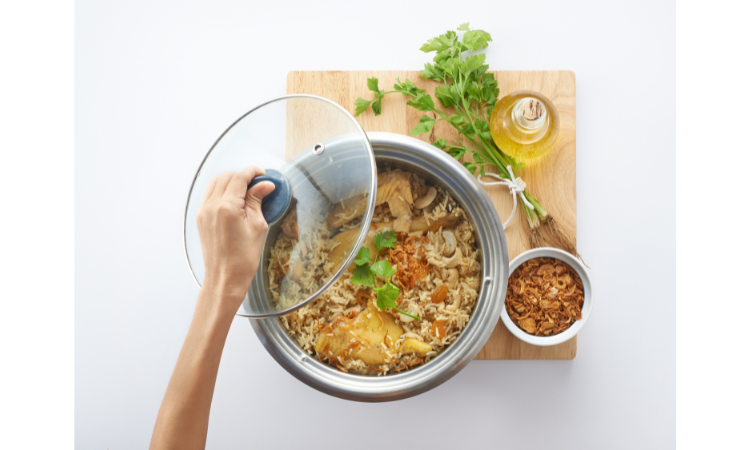
Opt for baking, grilling, steaming, or sautéing instead of frying. This helps to preserve the natural nutrients of the food while avoiding unnecessary fats.
Boost Flavor Without Fat
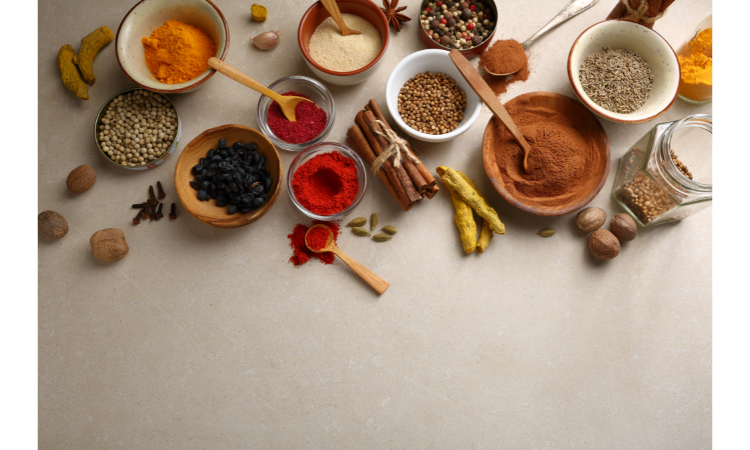
Spices, herbs, and other natural flavor enhancers like garlic, onions, and ginger can make dishes tasty without the need for added fats or cholesterol.
Regular Exercise and its Role
When discussing cholesterol, it’s crucial not to overlook the pivotal role of regular physical activity. While diet plays a significant part, exercise is the complementary piece to the cholesterol-management puzzle.
Cardiovascular Activities

Engaging in cardiovascular exercises like walking, jogging, cycling, or swimming can raise high-density lipoprotein (HDL) cholesterol, the “good” cholesterol. Even 30 minutes of moderate exercise most days of the week can have a noticeable impact.
Strength Training

Strength training, whether through weights, resistance bands, or body-weight exercises, can also help lower bad cholesterol and raise the good. Aim for two or more days a week of strength-training activities.
Flexibility and Balance Exercises

Yoga and Pilates not only improve flexibility and balance but can also reduce stress, a less acknowledged contributor to high cholesterol levels.
Lifestyle Choices and Cholesterol
Beyond food and exercise, various lifestyle choices can influence cholesterol levels:
Quit Smoking

Giving up cigarettes can improve HDL cholesterol levels, and the benefits can be noticed as soon as 20 minutes after quitting.
Limit Alcohol Intake
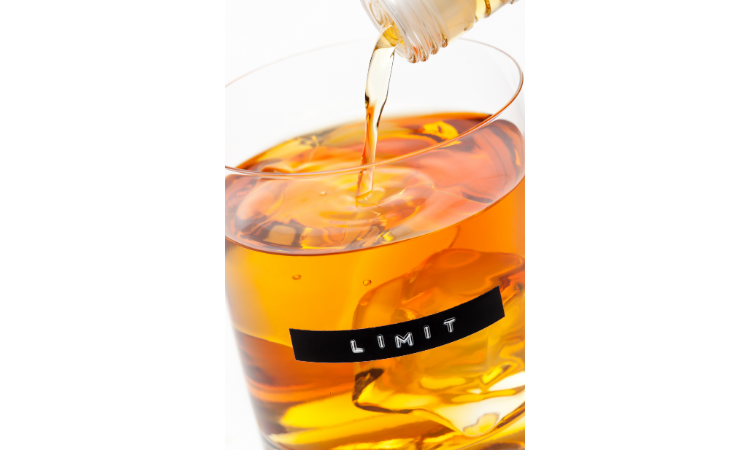
While some research suggests a small amount of alcohol might be beneficial, the potential benefits must be weighed against the risks. Moderation is the key. For healthy adults, that means up to one drink a day for women of all ages and men older than age 65, and up to two drinks a day for men age 65 and younger.
Manage Stress

Constant stress may contribute indirectly to heart disease risks, like poor eating habits and tobacco use. Finding healthy ways to manage stress, like meditation, deep breathing exercises, and hobbies, can positively impact your cholesterol levels.
Embracing a Cholesterol-Conscious Community
Building a community or being a part of a group that emphasizes heart-healthy habits can be a source of motivation and support. From recipe-sharing to workout buddies, this communal aspect can make the journey more enjoyable and sustainable.
Conclusion
Tackling cholesterol levels requires a holistic approach. While the top foods without cholesterol are undoubtedly an essential component, integrating regular exercise, making informed lifestyle choices, and embracing a supportive community are equally crucial.
Remember, every individual is different. What works best for one person might differ for another. Listening to your body, staying informed, and making adjustments as needed are critical. As always, seeking advice from healthcare professionals can offer personalized guidance tailored to your unique needs.
By embarking on this comprehensive path, not only do you enhance your heart health but you pave the way for overall well-being, vitality, and a fulfilling life. To a future with healthy hearts and joyful spirits.











